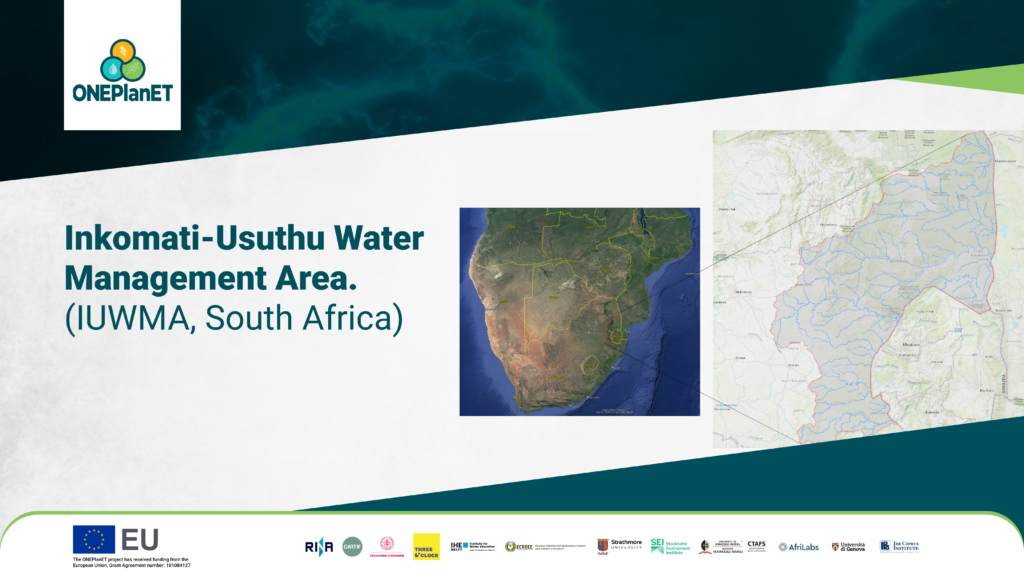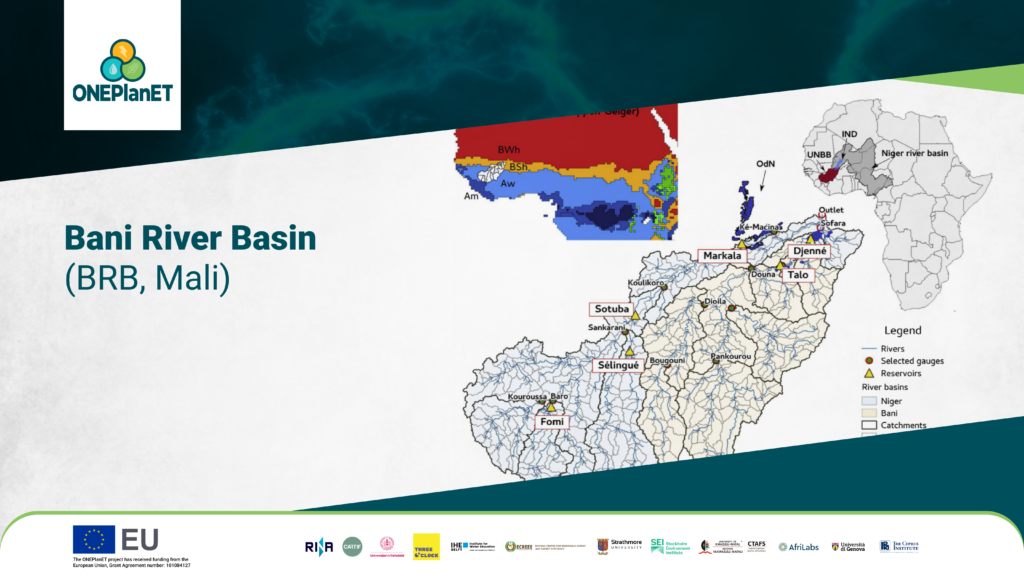About Us
![]() The ONEPlanET project has received funding from the European Union, Grant Agreement number: 101084127
The ONEPlanET project has received funding from the European Union, Grant Agreement number: 101084127
The ONEPlanET project, a consortium of African and European partners, seeks to empower African policymakers, researchers, investors, and citizens with the knowledge and tools needed to increase clean energy production while reducing inequalities and cultural and social gaps.
- ONEPlanET will co-design and test a Toolkit, built upon existing WEF Nexus models and methodologies, that allows to simulate scenarios to optimize existing resources with the most appropriate policies considering social, climate, economic and biophysical constraints.
- In addition, a Knowledge Hub including a set of capacity-building materials and knowledge exchange activities will also be developed.
- ONEPlanET will undertake a participatory approach to building local communities in three African case studies: Songwe (Malawi/Tanzania), Inkomati-Usuthu area (South Africa) and Niger (Nigeria) river basins.

Our Goals
ONEPlanET aims at becoming the Toolkit supporting decision-makers in the energy field in their day-to-day work. It will provide open-source tools, models and materials helping them to take informed decisions, considering social, economic and environmental parameters.
ONEPlanET ambition lies in these 4 main pillars:
ONEPlanET is building knowledge communities from existing partners’ communities around the Nexus initiative, mixing experts and future users of the platform from the EU and AU. The knowledge communities will also build on the existing networks of the EU and AU partners, particularly linked to the UNESCO institutions and collaboration.
Building the ONEPlanET Toolkit with knowledge from Local Communities, will allow the design the user experience of the whole Toolkit adapted to real problems and challenges.
Most of the existing models simulate the WEF Nexus in a one-way direction rather than fully investigating the feedbacks and interconnections of each element. ONEPlanET is addressing these missing aspects which include:
- Connections with other sectors (i.e socio-economic)
- Inclusion governance policies
- Bottom up approach
Through capacity building, organizations and more generally all actors in the Nexus can develop competencies and skills that enable them to use resources more effectively and sustainably. ONEPlanET capacity building strategy has been conceived at two main levels: informing and learning.
Case Studies
ONEPlanET concept is built using three relevant case studies in Africa that represent different types of river basins, social, economic and energy contexts. The representativeness of the case studies ensures broad replicability of the project solutions and provides an interesting opportunity to progress in the development of a just energy transition in Africa that provides energy access for local communities and the conservation of resources and the environment.
Sign up to our newsletter
Be the first to hear about the latest trends.


